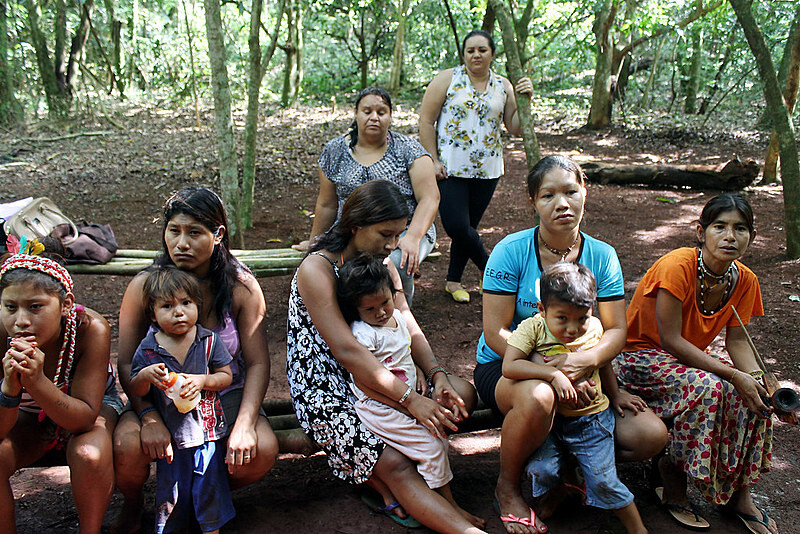
(C) Rede Jubileu Sul
Belém do Pará, Brazil – Representatives of the Ava Guaraní Paranaense Indigenous people are poised to make a powerful statement at the 30th Conference of the Parties (COP30) to the UN Framework Convention on Climate Change, scheduled for November 10–21 in Belém do Pará. Their central demand is the restoration of climate justice and comprehensive reparations for the devastating loss of ancestral lands caused by the construction of the Itaipú Dam nearly five decades ago.
A Half-Century of Displacement
The Itaipú Binational Dam, jointly owned by Paraguay and Brazil, was constructed between 1978 and 1981 and officially opened in 1984. Its creation, as one of the world's largest hydroelectric power plants, led to the forced displacement of hundreds of Ava Guaraní families living near the flooded reservoir.
This "ancient people of the Alto Paraná-Mata Atlántica forest" asserts that they were forcibly removed from their homes, witnessing their forests, houses, and even ancestral burial grounds submerged. They describe their existence since then as one of "deprivation, dispersion, and forced silence."
Supported by Amnesty International Paraguay, the community highlights that of the 55 affected communities—36 in Paraguay and 19 in Brazil—they were compelled to "live in places belonging to others," far from the forest and river vital to their traditional way of life.
Core Demands at COP30: Land and Compensation
The Ava Guaraní delegation views the recognition and restoration of their ancestral territories as the "foundation of all climate justice and historical reparation." Their comprehensive demands at COP30 include:
Territorial Restoration and Comprehensive Reparation: They call for the restoration of their ancestral territories on both banks of the Paraná River and full compensation for the "historical, cultural, and environmental damages" inflicted.
Just Energy Transition: The group advocates for a transition that is free of hydroelectric power plants or extractivism on Indigenous lands.
Itaipú as a Symbol of Debt: They insist that the "Itaipú case" be included in the official COP30 report as a symbol of ecological and energy debt, representing "climate injustice, forced displacement, and historical debt to Indigenous peoples."
Territorial Rights as Global Climate Policy: The Ava Guaraní propose that the recognition of territorial rights be considered a "pillar" of climate change mitigation and adaptation policies, in line with the Paris Agreement and the Global Biodiversity Framework.
Indigenous-Managed Compensation Fund: They request a "comprehensive compensation fund" for peoples and communities displaced by hydroelectric power plants, specifically proposing a binational fund managed by Indigenous people to address damages caused by dams like Itaipú.
International Momentum
The Ava Guaraní’s push for accountability aligns with a growing movement among Indigenous groups worldwide who argue that protecting their ancestral lands is one of the most effective strategies for climate change response.
While some institutions in Brazil have recently begun to listen, initiating lawsuits for territorial restoration, the Paraguayan government has yet to join this process. Nevertheless, both the Brazilian and Paraguayan governments have officially acknowledged and apologized for the human rights violations suffered by the Ava Guaraní people. Their case is expected to be a prominent agenda item at COP30, highlighting the intersection of human rights, environmental protection, and energy policy.
[Copyright (c) Global Economic Times. All Rights Reserved.]





























